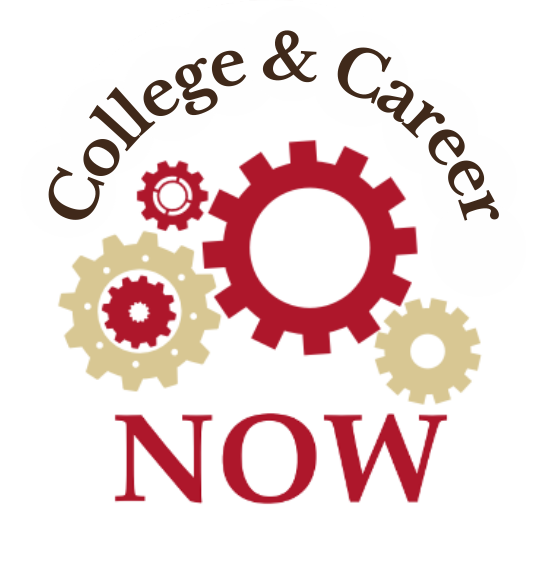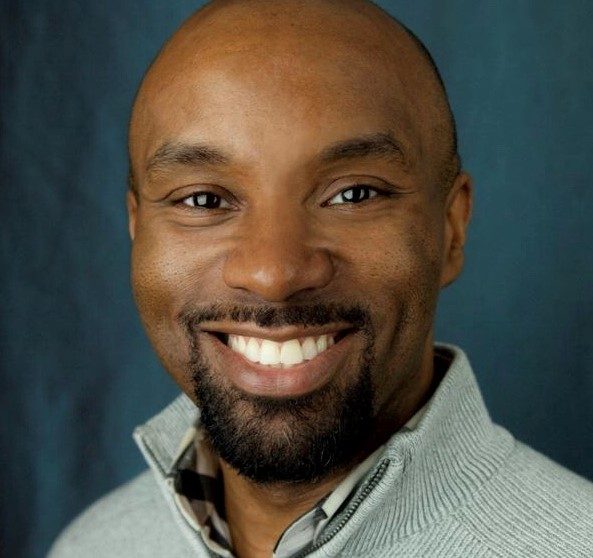
Culturally Responsive Education: Reflection – Beyond the School Walls
Liberation Through Education- Part 3
By John Johnson
Director of Postsecondary & Alumni Affairs
Looking Back to Move Forward
Over the last couple of weeks I have experienced some very proud and exciting moments. As I scrolled through my social media page I saw so many of my former students graduating from college. It was exciting because they were all students from my first class as a counselor at University Prep Art & Design. For the past six years I have had the pleasure of supporting the graduating classes at UPAD with developing plans to help them reach their postsecondary goals. As a college coordinator I have the distinct role of navigating students through the complicated process of filling out college applications, financial aid, scholarships, housing applications and much more. Above all however, I believe my biggest responsibility in this role is to help students believe that they can reach their dreams. It is an honor, and is more than a job to me, it’s my passion.
As I draw close to the end of my sixth year in this role I reflect back to my first year as a college coordinator. I had the goal of being a hero who would come in and save students by getting them out the hood and into college. I had my checklist of items that I needed each student to do:
- College Acceptance Letter: CHECK ✅
- FASFA Completed: CHECK ✅
- Scholarship: CHECK ✅
- Choosing your college and orientation date: CHECK ✅
It was near the end of my very first year… I was going through my checklist with each student, and came across a student who hadn’t made his official college decision. This was weird to me because we had met several times and decided on a school that matched perfectly to his needs both academically and financially. I angrily called him to my office so that we could discuss his procrastination. I had an entire speech in my head of what I would say to him “YOU ARE GOING TO MISS OUT ON THIS OPPORTUNITY!” “YOU HAVE TO DO BETTER!” and my all time favorite “YOU CAN’T APPROACH THE REAL WORLD LIKE THIS!” When the student walked into my office I wasted no time in questioning him. “WHY HAVEN’T YOU PAID YOUR DEPOSIT AND SIGNED UP FOR ORIENTATION?!” The student looked at me as if he was carrying the weight of the world on his shoulders. He paused and said, “Mr. Johnson, I… AM… SCARED”. My anger instantly turned into disappointment. Not toward him but disappointment toward myself. In my attempt to be a hero, I never took the time to listen to what he may be going through. In our many meetings over the years, he always came across as confident and sure of himself but today, he was a student who needed someone to listen and validate him.
He talked and I listened for over two hours and he shared with me that he was the first in his family to go to college, and that he was afraid that he would let his family down if he didn’t make it to graduation, and that he had never been away from home. The part that broke my heart is when he told me, “I don’t know if I am good enough.” My instant reply was, “What if you are good enough, and what if you do make it.” He responded with, “I never looked at it that way.” As we finished our discussion, we signed him up for orientation and I gave him a hug and assured him that he would be alright.
That conversation was transformational for me because it made me change my entire approach to this work. In the words of Tina Turner “We don’t need another HERO” (I just aged myself ). Our students needed someone who could relate, support and validate their experience.
CRE and College Counseling
Often when we think about Culturally Responsive Education (CRE) we do so in relation to students’ experience in the classroom. There is not enough conversation surrounding CRE in counseling practices. I can make a case that CRE is just as important when counseling students. Our students grow up in a world that tells them:
- Because they are black, their lives don’t matter
- Because they are from Detroit, they are less than
- Because they come from low and working class backgrounds, they can’t achieve.
When we incorporate CRE into our counseling practice we begin to create counternarratives to the aforementioned views. I suggest a more culturally responsive approach to college counseling and access, that refrains from a deficit viewpoint, and considers the contextual needs, cultural knowledge and assets our students embody to realize their college aspirations and career goals. Too often when we measure college readiness we do so based on White middle class students as the dominant measure for academic and personal standards to determine if a student can succeed in their pursuit of college and life. However, our students have gained a specific set of skills and resilience that has allowed them to survive and thrive in Detroit when it was at its worst. That same resilience can be translated to their success in college and beyond. Dr. Shaun R. Harper Provost Professor in the Rossier School of Education and Marshall School of Business at the University of Southern California discusses this in his presentation “This too is Racist” When we devalue the experience and capabilities of Black students, we are committing to racist behaviors. To overcome this we have to begin telling our students that their lived cultural experience matters and is valued. In addition, we also have to help our students unpack the cultural experiences they have and translate it into tools to help them reach their personal and professional goals.
Taking a New Approach
I decided to transform the approach I would take as a counselor and take a more culturally responsive approach. I had to move away from being a hero and take on more of a restorative approach. I remember Dr. Chris Emdin calls it “ Restoration over Rescue Mission”. With that in mind I decided to approach this in three different ways.
- Listen: Often our students are told to be “seen and not heard”. I have to create more opportunities for students to express their fears, concerns and experiences. We can’t help students until we understand them; we can’t understand them till we listen to them.
- Student-Centered: Move away from my own personal objectives when meeting with students. Allow them the opportunity to discuss their needs, goals and plans and respond and support appropriately. Remember that each student is different and requires a unique approach. Instead of looking at their experiences as setbacks and deficiencies we must help them understand those experiences are tools that have helped them grow personally and professionally. Help them translate how those experiences can lead to their success in college, career and beyond.
- Empower: Students should walk away from counseling and coaching sessions empowered to reach their goals. Many students are victims of oppression and racism and may need motivation to move forward. Before students leave high school and transition into the next stage of their life, they should have a positive self appraisal of themself (self actualization). They should believe in themselves and know that they can achieve any goal they set for themselves, despite the obstacles and experience of their past.
- Love: Our students deserve to be loved. I charge every educator to move away from robotic interactions with student and instead approach students with love and their well-being
What CRE Means to Me
The thing that I had to learn as a counselor is that I had to meet the needs of the students and not my own objective. Access to a college education is not enough. TOO many of my students feel that they won’t make it in college because they feel they are not good enough or because they feel they don’t deserve it. As educators we have to provide students with the tools and self assurance to deal with the pain of fundamentally being disempowered and oppressed. When we liberate students through education we create students that transform and not conform. But we must be careful in our approach, because education in the past (in some cases currently) has been used as a tool to oppress communities of color. This is why providing students with a culturally relevant education is paramount. By infusing CRE we are able to create conscious and self-empowered individuals who use their educated voice for themselves and their community. They use that educated mind to disrupt and dismantle systems of oppression and inequities to create a better world for us all.
As I was scrolling through my social media and seeing each of my former students in their college cap and gowns I ran across the student who I mentioned earlier. There he stood with his Cap and Gown on and a caption that said “I DID IT” I enthusiastically sent him a message that said “Congratulations Bro, I’m proud of you. If you need anything, call me.” Within an hour my phone rang and it was him. He said “I don’t need anything. I just had to say thank you for everything, it was a hard journey, but I did it!” With a huge smile I simply replied, “it was my pleasure brotha!”
Citation: Johnson, John “Culturally Responsive Education: Reflection- Beyond the School Walls” Uprep School Inhouse Blog, June 9th 2021, https://uprepschools.com/liberation-through-education-culturally-responsive-education/

